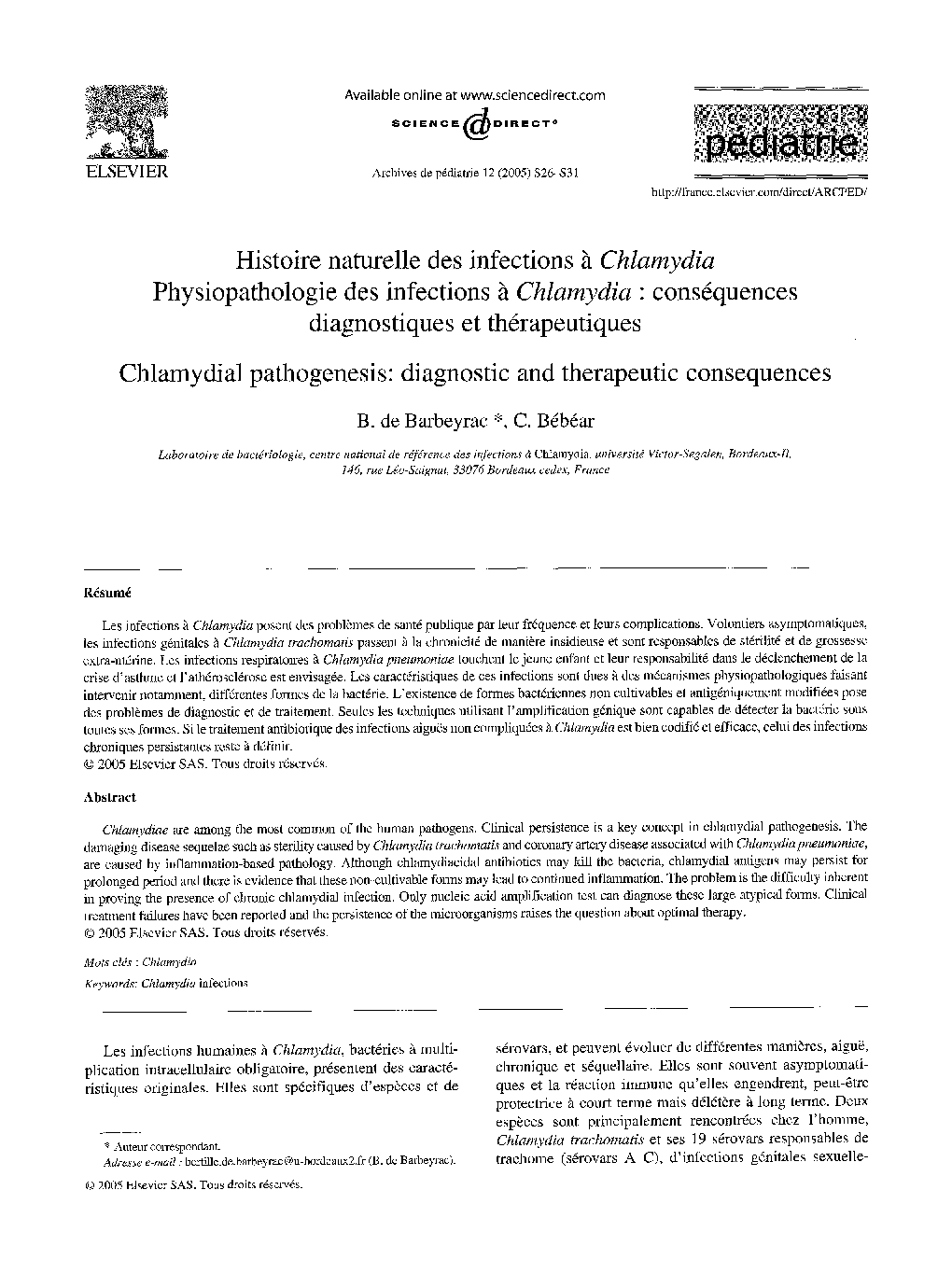| Article ID | Journal | Published Year | Pages | File Type |
|---|---|---|---|---|
| 9369669 | Archives de Pédiatrie | 2005 | 6 Pages |
Abstract
Chlamydiae are among the most common of the human pathogens. Clinical persistence is a key concept in chlamydial pathogenesis. Thedamaging disease sequelae such as sterility caused by Chlamydia trachomatis and coronary artery disease associated with Chlamydia pneumoniae, are caused by inflammation-based pathology. Although chlamydiacidal antibiotics may kill the bacteria, chlamydial antigens may persist for prolonged period and there is evidence that these non-cultivable forms may lead to continued inflammation. The problem is the difficulty inherent in proving the presence of chronic chlamydial infection. Only nucleic acid amplification test can diagnose these large atypical forms. Clinical treatment failures have been reported and the persistence of the microorganisms raises the question about optimal therapy.
Keywords
Related Topics
Health Sciences
Medicine and Dentistry
Perinatology, Pediatrics and Child Health
Authors
B. de Barbeyrac, C. Bébéar,
